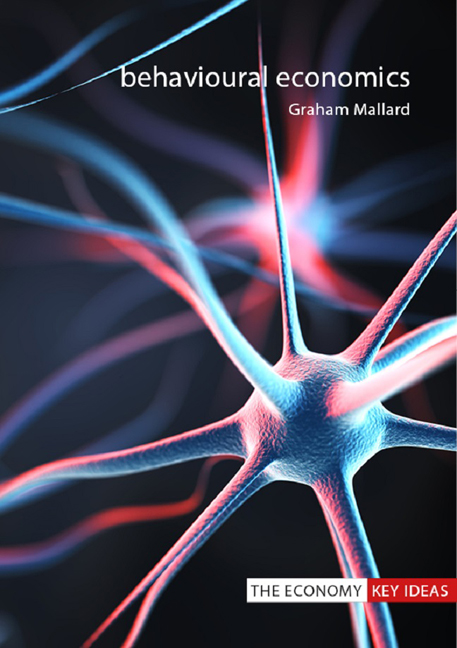3 - Preferences
Published online by Cambridge University Press: 09 August 2023
Summary
One of the aspects of our behaviour that we now understand considerably more because of behavioural economics is that of our preferences: the values we assign to the various options available to us when making decisions. The view of preferences traditionally adopted by mainstream economists is that they are complete, stable, reflexive, transitive and immune from changes in ownership (see Chapter 1), but there now exists a plethora of behavioural findings demonstrating they are not in fact like this.
These findings are the focus of this chapter. Our preferences when faced with immediate choices – which may or may not be certain – are examined first, leaving our preferences when faced with choices across time to later in the chapter. The focus throughout is on the decisions we make that are not affected by, nor affect, the decisions of others: the focus is on our individual rather than strategic behaviour (see Chapter 5 for an examination of the latter).
Loss aversion
Jimmy Connors, the former world number one tennis player with eight major championship titles to his name, remarked that he hates to lose more than he likes to win. Such a sentiment is perhaps unsurprising from such a competitive individual, but behavioural economists have in fact shown it to be common to us all: a sentiment known as loss aversion.
The traditional assumption that our preferences are reflexive (see Chapter 1) implies the utility we gain from an item is exactly the same as the utility we lose from having the very same item taken away from us. Work on prospect theory (see Chapter 4), however, reveals this is not the case and that our preferences can in fact be represented by utility functions such as that in Figure 3.1. Gaining an item – a first glass of wine in this case – brings us a certain amount of utility, in this case an amount of satisfaction equivalent to £5. Gaining a second brings us additional utility, but less than the first because of diminishing marginal utility (see Chapter 2): £2 in this case.
- Type
- Chapter
- Information
- Behavioural Economics , pp. 27 - 38Publisher: Agenda PublishingPrint publication year: 2017



